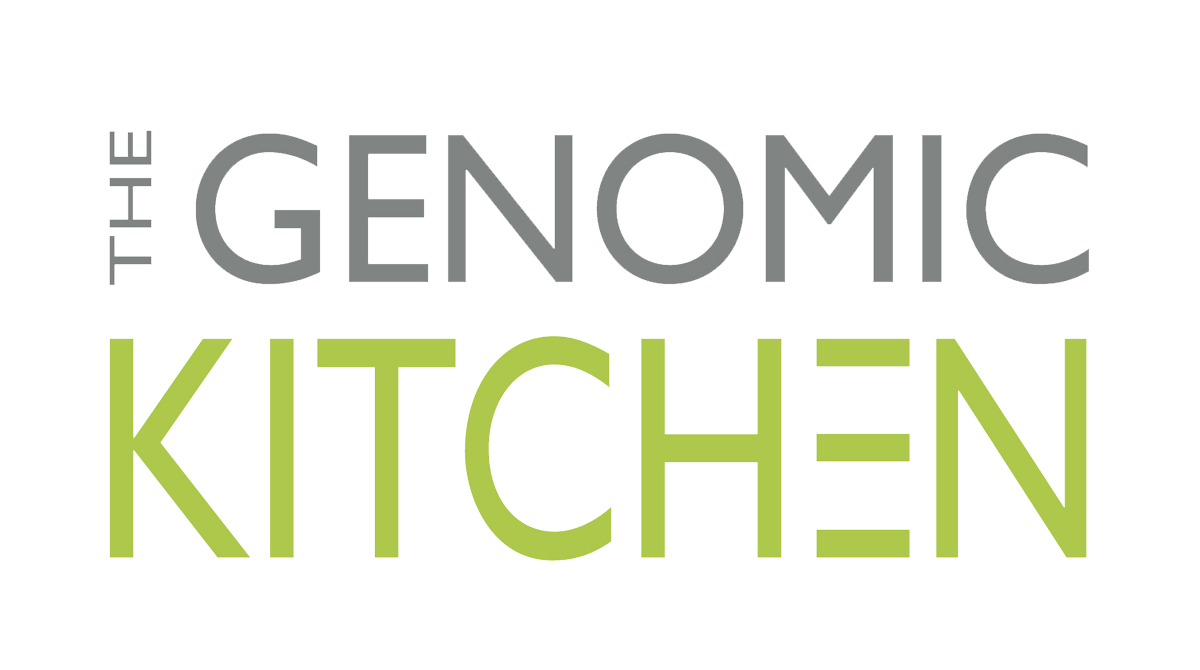What To Eat For Diabetes
/Knowing what to eat for diabetes can make a huge difference. It’s hard to know what to eat because there are so many generic food rules and nutrition recommendations out there. But, we know everyone is unique, so what about your diabetes? What if you’ve tried to follow recommendations and they didn’t work for you? How would you know what foods and nutrients are best for your individual needs?
This is where the science of genetics can help (think: DNA). Your genes are unique to you and they tell a story about which foods and nutrients work best for you and your diabetes.
Let’s talk about how the latest technologies in gene science can help you understand and better manage diabetes with food and nutrition. This is very important because there is no single list of what to eat for diabetes that fits everyone’s genes.
What is Diabetes?
Let’s talks the basics first. Diabetes is when your body has trouble smoothing out your blood sugar levels.
When you eat, the amount of sugar (or glucose) in your blood naturally rises. This is because your digestive system absorbs nutrients from your food. Those nutrients are carried to the cells throughout your body by your blood. When your blood sugar levels get too high your body produces the hormone insulin. Insulin tells your cells to absorb that sugar out of the blood so they can use it as fuel. Absorbing that sugar into your cells lowers the sugar in your blood. The up and down of your blood sugar levels (within a range) is how it’s supposed to work. This means your body is maintaining your blood sugar levels in a healthy range while “feeding” your cells. This is ideal.
Diabetes occurs when this stops working well and your blood sugar levels become harder to manage. For example, when the high blood sugar after you eat stays up too high or for too long. You want it to be able to quickly go back to a healthy level. Diabetes happens when your body’s insulin isn’t doing what it’s supposed to be doing.
There are two types of diabetes. Type I is often diagnosed at a young age and occurs when your body physically cannot make insulin anymore. Type 2 diabetes occurs over time when your body continues to make insulin, but the insulin stops working efficiently. This happens when your cells get resistant to it (“insulin resistance”). They ignore insulin’s calls to absorb the sugar from your blood.
What Causes Diabetes?
Think of diabetes as the end game of an imbalance that results in elevated blood sugars (also known as “glucose dysregulation”). Because diabetes occurs at the end of a process, the question we have to ask is – how did a person get there? What are the causes?
Some factors that contribute to type 2 diabetes may be
Poor diet
Stress
Lack of exercise, or perhaps the wrong exercise that itself causes inflammation or injury
Something else occurring in a place we never considered looking!
And this is where looking at your genes is so useful. Genomics is the science that helps us understand human genes.
Here’s how you can picture it. Perhaps you are an excellent sprinter, but your sibling is a better swimmer. Maybe you have a tendency toward higher LDL-cholesterol levels, while your cousin has slightly higher blood sugar. These unique predispositions are a reflection of the variations in your genes. Yes, the genes you’re born with affect your health, abilities and a lot of what makes you, you.
Genetic variants are called single nucleotide polymorphisms or SNPs (pronounced “snips”).
Many of these gene variants influence how diabetes uniquely shows up for you and these can influence how you should eat for diabetes.
Nutrigenetics and Diabetes
As mentioned, the genes you’re born with influence your health and can cause imbalances that can impact your health. But what you eat (nutrition) and lifestyle choices also influence your genes.
One very interesting arm of gene science is called “Nutrigenetics” (nutrition + genetics). Nutrigenetics describes how your genes interact with the food you eat, the exercise you choose, the environment you are exposed to and even how you handle stress. (Remember, all of these can contribute to your personal risk of diabetes or many other health issues.) The impact these have on your genes determines your unique traits or predispositions.
Think of nutrigenetics as information that helps us find strengths and weaknesses in our own personal biochemistry. Each of us has unique strengths and weaknesses.
There is NO ONE PATTERN of genes that fits diabetes. Therefore there is no one answer to what to eat for diabetes that fits everyone either.
This means that what you eat and your lifestyle and environmental exposures can affect which of your genes plays a bigger role in your health.
As you can see, it’s a two-way street. The genes you’re born with influence your individual health. And your nutrition and lifestyle influence your genes.
How Diabetes, Your Genes and Nutrition Interconnect
If you search the internet for nutrition and diabetes, how many different articles will you find? How many different nutrients are being praised to impact diabetes and blood sugar? Lots. The problem is that these nutrients and foods impact each person differently. Let’s go over one example so you can see how your very own genes can inform you on the foods and vitamins you—as a unique person—need.
Rich In Vitamin D
For example, when you think of Vitamin D, you probably think of bone health. We now know that the insulin-making cells in the pancreas contain Vitamin D Receptors. This suggests that Vitamin D plays a role in insulin secretion. Genetics tells us whether your personal vitamin D receptors are functioning efficiently. They can also tell us which forms of Vitamin D would work best for you. Another question your genes can answer is how much Vitamin D do you need (versus the next person)?
Some people can effectively take the ergosterol precursor to Vitamin D and translate it into its active form so that it can bind to those receptors and perhaps influence insulin secretion.
Genetic information provides clues to create an informed picture of what you need to eat for diabetes—or many other conditions.
Read more about Vitamin D actions here
Diabetes - It’s The Pattern of Genes That Counts
Let’s be clear: NO ONE GENE PREDICTS DIABETES. It is a pattern of genes that control functions related to diabetes (think insulin secretion) that matters. There are several genes I look at when preparing advice for you on what to eat for diabetes.
Here’s what you need to know.
There is no one unique set of genes that says “you have type 2 diabetes.”
Some gene variants may influence insulin sensitivity. So, people who have those variants may have a more sluggish insulin response than people who don’t. This means that the insulin isn’t doing the work it needs to do to bring down high levels of sugar in the blood.
For example, the ADIPOQ gene encodes for adiponectin. Higher levels of adiponectin are associated with a better insulin response. Lower levels are associated with a more sluggish response, which may be impacted by total body weight. Depending on the variant you have, this may influence your insulin response and therefore your blood sugar levels.
Another example is the IRS1 gene. This gene is also involved with insulin response. If you have the TT variant, you may have a better insulin response than if you have the C variant. Fascinating isn’t it?
Some genes can play tricks with your appetite. Yes, it’s true! For example, they may turn off your satiety mechanism (so you don’t feel satisfied and full as easily). This lack of satiety creates the illusion of hunger. No kidding! If you consistently feel hungry and eat more than your energy needs, then weight gain is possible. Weight is correlated with Type 2 diabetes. Genes I might look at here include FTO, LEPR, MC4R. for example.
And yes, some genes do make you more sensitive to saturated fat or the amount of fat you should eat. And this can apply to anyone, whether you have Type 2 Diabetes or not.
The CC variant of the APOA2 gene tells me that you may benefit from lower intake of animal sources of saturated fat. The GG variant of the FADS1 gene also tells me that lowering the same source of saturated fat (and replacing it with omega-3 or maybe monounsaturated fats) is a better fit for your genes.
Another interesting gene which is one of my favorites is the “supertaster” gene. People with the T variant of this gene are often very sensitive to bitter or earthy/pungent tastes. These are the folks that absolutely hate kale and broccoli because they literally taste awful. (Is this you?) What we know is that a substitute for bitter is sweet. So there is a tendency to prefer sweeter and more carb-dense foods. Carbs (carbohydrates) are broken down into sugars by your digestive system. Do you see the connection to diabetes?
This is the TAS2R38 gene.
Learn more about it here
All Health Requires Nutrient Balance (Whether We’re Talking Diabetes or Not)
As you can see, it is the pattern of several genes that creates a picture of your uniqueness, and not one gene or another. Knowing what pattern you have can help inform you on how you as a unique person should eat for diabetes.
You have probably figured out by now that I consider your whole person and not your diagnosis. For sure, diabetes assumes blood sugar irregularities which we seek to smooth out. But the question I always ask myself is
“What patterns can I see in YOUR DNA that might be upsetting the balance of your biochemistry (human operating system)?”
Correcting those patterns to create overall balance and synergy is a fundamental step in restoring and maintaining health. After all, why would we just focus on your blood sugar if all your B vitamins are deficient? (And trust me, you need your B vitamins!!) You can’t correct one aspect of your biochemistry, without focusing on all of them as one interlinked system.
I know it’s not helpful to tell you that you have diabetes because you have genes X, Y and Z. It is far more helpful to understand how your body responds to the environment you are living in and how you can support it to function in harmony, based on your genes.
Eating, moving and living in synergy with your genes will deeply influence how you—versus anyone else—can live your healthiest life with diabetes!
Here’s What to Eat for Diabetes
First of all, click on the image to download our free book of low-glycemic recipes. I created it specifically to help you start smoothing out your blood sugar levels with delicious and nutritious meals. This recipe book features recipe examples with lower total carbohydrates.
Secondly, enroll in the Genomic Kitchen Express Course and discover how the food you eat “talks” to your genes. Learn which food to choose, how it communicates with your genes, and the simple delicious ways to get the right food on your plate. You see the fundamentals of eating for your genes apply to us all, because we ALL have to take care of our blood sugar.
SPECIAL OFFER: Use coupon code EATFORDIABETES to get 30% off $59 Now!
Thirdly, as you can imagine, I look at a lot of genetic information every day. Each time I open up genetic test results, I see completely different patterns. No one person is alike. What I want you to know is that when I personally review genetic test results, I never look at them to look for, or confirm, a diagnosis. In fact, I usually look at your genetic information BEFORE I look at your health history. This keeps me focused on finding patterns in information that may not have been obvious before.
If you’d like to work with me to help support your best health by looking at your genes and knowing exactly what to eat for diabetes (or any other condition), you can contact me to set up a call. We can chat about your unique health needs and how gene insights can provide you with the help and direction you deserve.







